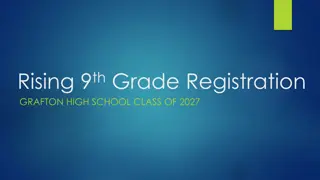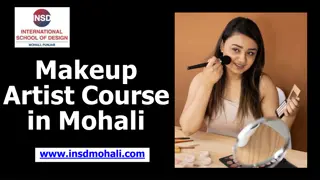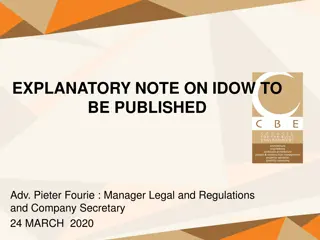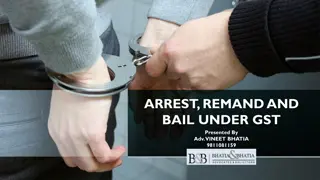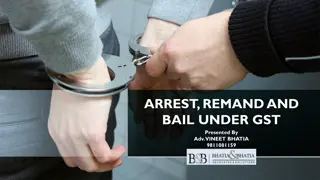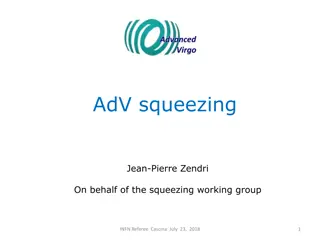
Eccentric Flash Fiction: Journey Beyond Death
Explore a quirky yet intriguing narrative of a protagonist's afterlife journey, filled with dark humor and unexpected twists. The story delves into themes of invisibility, revenge, and acceptance, painting a vivid picture of life beyond death's veil.
Download Presentation

Please find below an Image/Link to download the presentation.
The content on the website is provided AS IS for your information and personal use only. It may not be sold, licensed, or shared on other websites without obtaining consent from the author. If you encounter any issues during the download, it is possible that the publisher has removed the file from their server.
You are allowed to download the files provided on this website for personal or commercial use, subject to the condition that they are used lawfully. All files are the property of their respective owners.
The content on the website is provided AS IS for your information and personal use only. It may not be sold, licensed, or shared on other websites without obtaining consent from the author.
E N D
Presentation Transcript
Jump The Shark Jump The Shark Flash Fiction- Age 14 On the day of your death, rain will fall in slanted, angry lines across your bedroom window. You will watch, from somewhere around the ceiling, as nobody cares to notice. They will say you tripped. You tangled your cursed clumsy feet up and smashed into the posts of your cheap Ikea bed (f rb veln!),leaving a murky pond of metallic blood on your landlord s new carpet. It will be your final mission. He will curse you and your leaky cerebral matter later with a finger raised to the sky, his glasses askew. But you did not trip. It is exceedingly important you don t believe what they say. At first, it s the lack of sound that will bother you. It s as if death has eaten all the noises, swallowed them whole. You can t hear the couple downstairs arguing. You can t hear your landlord as he mutters, disgusted at his dying mother. Because death, like theaters and libraries, is a silent beast, all teeth and nails. But eventually you start to enjoy the newfound hush. You will start to subtitle things. Go ahead. Make children swear. Make a morose middle-aged banker tell his boss, quite solemnly, that he prefers bubble baths to the traditional scented candles. It will make you laugh silently, your translucent shoulders quaking with bored mirth. It will pass your time. Do not attend your funeral. It will only make you angry. Your third-grade teacher, Mrs. Turnpike, will mouth embarrassing stories while the funeral home director eats all the free buffet food. You will notice he really likes champagne. Afterwards, you slash the tires of his new Hyundai. Whisper in his ear that he s a cheap bastard as he stares at it in sweaty anger, rubbing his too-big ears anxiously with pancake palms. They bury an empty coffin. Your body disappeared while in the morgue. A potbellied reporter will sigh. Nudge a female cop named Elsie with an elbow. Take a sip of his decaf, and say, damn shame, that is. Damn shame. Can I have your number?
Read the newspaper instead. You will find a neat, two-by-four article in the back, a picture of you, cropped accordingly, next to a column of nice things. You think it looks like ants. They call you a child prodigy, and a young, tragic victim. Again, they will say you tripped. Such a sad thing, he jumped the shark at 21. It will not mention your drinking problem. Or the twenty thousand in cash you lost, red-faced, in Vegas last year. Breathe. You sound wonderful. Another article will brief the city on the business, and then you will slip away from their minds like failed reality TV show. You will notice it is smaller than your obituary, and it mentions the drinking. Don t cry about it. Mourn your wandering corpse, then haunt a Goodwill. Doze off in an alleyway, and wake to find a homeless man crying into his coat, yelling at someone named Rachel through snot and sour tears. Throw things, have silent tantrums, and run on water. Go to France. Break the law, then remember, somewhat loathingly, that you are invisible. You start to feel the silence; it weighs on you, twenty-odd pounds of bored frustration. They will never find your killer. You know it was murder. Someone shadowy who climbed in through an unlocked window, and smashed your face with a signed Sammy Sosa bat. Wonder, dryly, if it was corked. You never liked baseball much. Your tongue will start to feel dry. Your feet, eternally wrapped in old Christmas socks, will start to fade, and your arms will cave in on themselves. You know your time is ticking. It s been only a year since your death. You won t want to go. But you are tired. Every floating, faltering step feels like a marathon in molasses to you. Return to your apartment, small, dark, and occupied by an up-an-coming British DJ named Paul. Wander the halls, before coming to a stop in your old room. There is nothing but a faded purple stain, a flimsy reminder of a kid who died a clumsy fool.
Lay down. Paul will be beat-boxing lonely in the corner. Be glad you cant hear him. Give a last glance at the ceiling. It is speckled with age, a clump of fungus, and a tiny nest of spiders. You will feel suddenly warm. Close your eyes. It will be raining. Angry slants beat the window, and you can hear them, a final word in your aching ears. They are like delicate drums, simple, mindless rhymes to a strange poem. Probably spiritual. You don t care. Let it put you to sleep. You will never wake up again.
The Banning and Challenging Of Books In Public Schools Critical Essays (also known as the category Persuasive Writing)- Age 17 In public schools, students are regularly given opportunities to read very diverse content through the platform of school libraries as well as through assigned reading for class. However, there are cases where parents, teachers, or even students themselves feel the content of a book is too inappropriate or taboo for a school setting. As a reaction, these groups often try to censor controversial books in schools by restricting access to them, or removing the books from the school altogether (Thomas 11). This censorship is a battle over cultural definition and intellectual freedom, (Anderson 3) based around social, sexual, political, or religious content (qtd. in Strothnmann & Van Fleet 164).
Modern education and higher education must work to balance individual and community excellence in school, which is directly related to comprehension inside and outside of the classroom including reading for enjoyment. Such reading for pleasure has obvious results, [s]tudies demonstrate [ ] that leisure reading correlates strongly with student achievement in the short-term as well as long-term success and civic participation (Strothmann & Van Fleet 165). Censorship of reading materials has occurred almost as long as writing has been around, but has become much more prevalent in recent years. Modern challenges have even solicited the creation of Banned Books week, which started in 1982; furthermore, Banned Books Week is sponsored jointly by the American Library Association (ALA) in addition to several other organizations and is usually celebrated in the last week of September to celebrate challenged books for their literary merit and quality. Contemporary cases of attempted challenges or bans on books have centered around books such as And Tango Makes Three, for normalizing homosexuality and a non-nuclear family structure; Bridge to Terabithia, for not respecting Christianity, mixing reality and fantasy, and the inclusion of death; and I Know Why the Caged Bird Sings for sexual themes, racism, abuse, and profanity/racial slurs (Thomas 17-19). In cases of controversial books in public schools, schools should not ban materials because their efforts to shield children from potentially offensive subject almost never amount to a reaction.
Also, bans parents wish to impose on materials can be ineffective for multiple reasons including students pre-existing knowledge, a lack of enforcement, and the counterintuitive effect of a ban. Bans and challenges tend to emphasize the unsuitable content of a book as opposed to the book s literary value; furthermore, students have a legal right to access controversial materials. Challenges in schools are often initiated by one particular group: parents. According to the Office of Intellectual Freedom (OIF) Censorship Database, 466 of the 748 challenges from the year 1994 were initiated by parents with the next largest group being the patron/student demographic who instigated 124 challenges (qtd. in Brinkley 18). This makes parents by far the most prevalent group in initiating review of materials. Parents are often trying to shield their children from subjects they feel are inappropriate or negative. These challenges are not necessarily limited to one social group, Diane Ravitch, an educational policy analyst and research professor at New York University, claims Both right-wingers and left-wingers demand that publishers shield children from words and ideas that contain what they deem the wrong models for living, (79) and as famous author Judy Blume said [parents] want to believe that if their children don t read about it, their children won t know about it. And if they don t know about it, it won t happen (qtd. in Petrilli 4).Intellectual freedom and unprohibited access to reading materials allows the youth to develop their own informed opinions.
In a study about censorship conducted by Natasha Isajlovic-Terry and Lynne McKenchie with children ages nine to twelve, Emily, age nine, said I don t think [parents] should stop you I think kids should be able to read whatever they want and believe in whatever they feel like believing in (qtd. in Isajlovic- Terry & McKechnie 40). Julie, age ten, similarly expressed that parents should have a limited influence and they should maybe stop you if it was really, like a bad book, (qtd. in Isajlovic-Terry & McKechnie 40) while Billy, age 10, said parents shouldn t get involved unless it s really bad (qtd. in Isajlovic-Terry & McKechnie 40). Children even believe they should have access to the majority of materials parents are trying to keep from students like themselves. Parents obviously have the right to choose how they raise their children, but should have limited control over public school curriculum. The parental influence on school curriculum should be limited because it is not the job of every mother and father to decide upon the exact curriculum for their son or daughter. Teachers and librarians are in charge of the materials their students are taught about and are also trained to make decisions about curriculum. Because of this training and authority, parents should be willing to accept the choices of teachers and librarians.
Poetry- Age 15 Dear Vincent, When I hear your name, I see yellow, blues but mostly Yellow, not the artificial kind but The one that charms, That ladies wear, that dashes through the sky When the crickets come out, That splays across prickling cornfields Like a carpet flush across the arid plain. I close my eyes on tired days And I see you, Standing in front of a canvas like a Jockey stands before an Unbroken mare, you have your sleeves rolled up and Straw hat pulled low, firmly gripping brush and Slashing, twisting and pulling on the taut fabric With your unharbored insanity, pellets of paint staining Your freckled arms, your nose, The air thick with the yellow fumes of your Feverish lust.
What was inside of your Soul, Vincent Was it fire or Ice? Both can burn, you know Both can sear the flesh from bone and crumbling marrow Turn fractured glass into a mirage of the human heart. What was it like, Vincent, To not know the slopes, the crooked angles Of your own body and soul, To be attacked by a sharp-toothed monster nestled Deep inside your heart Was it frightening, when It ate you? Did you feel its gnashing teeth, its caustic breath, Tearing your limbs into some contorted dance At the mercy of a satanic puppet-master With all the leisure in the world?
What were you thinking, Vincent, When you pressed the silver blade to your ear Were your hands shaking, were they sweating? Did you scream, thrash about like a fish slick from A crescent fall of crimson river-water, Or did you stare, uninterested, as you worked your way Around the pink, exposed flesh, the mutilated cartilage, Hands steady, with all the precision in the world? A human is not a canvas, Vincent. He cannot be molded, altered, changed to fit a purpose. You forgot temporarily, dear that your Skill lies in brushes and pots, Not sculpture. You know, Vincent, Someone once said to me that Good artists are quite like teacups, Fine-boned china men with the fragility of roses And God, dressed in his Sunday-morning kimono Eating a piece of burnt buttered toast He is the tea-maker. Now us, the normal, the average We get half a cup, rarely more A fine Grey Earl or strong Japanese herb, if you prefer, We are born with the influx of hot liquid into our bowels, The dunking of Tea leaves on our rims, Souls sloshing around in the Confines of our porcelain rib-cages.
Our lives are measured in sips between bites of toast And the Sunday paper Life rises in the form of white steam, We disappear between God s lips, Drained and gone. Now good artists, now they are of an Entirely different kind God is thirsting for caffeine, for a buzz He pours some tea, then more, then more Tea and soul and blood mix and spill in a fiery carnage A kaleidoscopic outrage Liquid splashes down the sides of these fragile glasses Overflowing onto saucers, and embroidered dollies. Artists need room, I m told, they need space They paint their spilled tea onto the whiteness of a canvas, The blankness of a page, The yellow gleam of a solitary spotlight Spouting their troubles into monologues and dances A good artist does not do good work, A good artist turns himself into the masterpiece. He frets over his imperfections, the cracks in his demeanor, Wrings the blood out of a washcloth And cries himself to sleep at night. Did your teacup spill, Vincent?
Did your oolong flow down the sides of your thin china walls Until you forgot the color of dry? That harsh, blinking simplicity, Walls too fragile and too glass-like to withstand the Imbalance within? How does fire taste, Vincent, When you forced the toxic paint down your throat. Were you trying to fill yourself with Color? Lavish blues and Bloody reds, Creamy yellows perfect enough to simply Melt the soul? Were you trying to turn Yourself into the art? To use the canvas of your Intestines, the wraparound pearl Of your stomach to mix the base pinks of flesh With the variegated shades of liquid poison?
Did it hurt, Vincent? When you stepped into the yellow fields, when you Pressed the gun to your chest Did it hurt? No, I don t mean the bullet, The shattering of the ribcage into fine dust What I mean is, What did you think, Vincent? Did you see your brother s face, in the sky? Did your heart contort and twist itself into An indistinguishable blackness, A scorching ash, a human vessel with the weight of Rusting iron? When I hear your name, Vincent, I see Yellow, blues but mostly Yellow, I see the sun dripping through oak trees In the summer, and honey glistening in a jar I see yellow, the kind that charms, That full-moon yellow that orbits the land, The kind that resides in the bottoms of cornfields And the petals of dying suns,
And that creases the sky when the crickets come out. I see the yellow that lights a fire and then burns to a Crisp Nighttime coming, Drained and gone. The yellow that leaves shadows, And monsters, when it s done. Love, (And yes, Vincent, there is such a thing As love in the world) Your native beast


